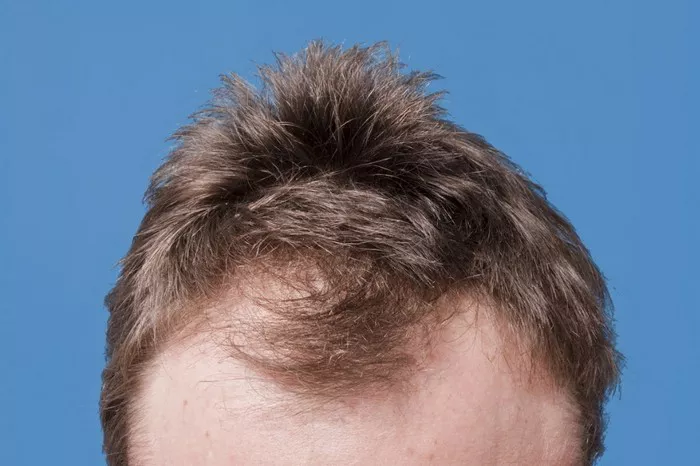In the pursuit of healthy and luscious hair, one often looks at external factors such as hair care routines, but we often overlook a crucial element – our diet. Consuming the right nutrients is essential for maintaining strong and vibrant hair. However, some foods may have the opposite effect, leading to unwanted hair fall. In this article, we delve into the connection between diet and hair health, shedding light on which foods you should be cautious about to prevent hair fall.
The Impact of Diet on Hair Fall
Before we explore the specific foods that can contribute to hair fall, it’s vital to comprehend how your diet influences your hair. The nutrients you consume directly affect the growth, strength, and overall health of your hair.
1. Protein Deficiency: Hair is primarily composed of a protein called keratin. Insufficient protein intake can lead to weakened hair and increased hair fall.
2. Vitamin and Mineral Deficiencies: Vitamins like Biotin (Vitamin B7) and minerals like Iron play a vital role in hair growth. A lack of these nutrients can result in hair loss.
3. Excessive Junk Food: Diets high in unhealthy fats and processed foods can lead to inflammation and oxidative stress, which can damage hair follicles.
See Also: Signs of Unhealthy Hair: Identify & Address Common Issues
Foods to Avoid for Preventing Hair Fall
Now, let’s identify some common foods that could potentially contribute to hair fall when consumed in excess:
1. Sugary Foods: Diets high in sugar can lead to increased insulin levels and inflammation, which may harm hair follicles. Reducing your sugar intake can help prevent hair fall.
2. High-Sodium Foods: Excessive salt consumption can cause water retention, leading to dehydration, which negatively impacts hair health. Reducing salt intake can be beneficial.
3. Trans Fats: Foods high in trans fats, like fried foods and certain processed snacks, promote inflammation and oxidative stress, contributing to hair fall. Opt for healthier fats instead.
The Role of Caffeine and Alcohol
While caffeine and alcohol are not foods per se, they’re commonly consumed beverages that can affect hair health when consumed excessively.
1. Caffeine: While moderate caffeine consumption can provide a boost in alertness and energy, excessive caffeine intake can lead to dehydration, which can weaken hair. Maintain a balanced caffeine consumption.
2. Alcohol: Alcohol can dehydrate the body and hinder the absorption of essential nutrients required for healthy hair. Limit alcohol consumption for the sake of your hair and overall health.
Nourishing Foods for Healthy Hair
In contrast to foods that can lead to hair fall, there are also dietary choices that promote hair health and minimize hair loss. Including the following foods in your diet can enhance your hair’s strength and vitality:
1. Salmon: Rich in Omega-3 fatty acids, salmon promotes hair growth and contributes to its shine and strength.
2. Eggs: Eggs are a great source of protein and biotin, essential for strong and resilient hair.
3. Leafy Greens: Spinach and kale are packed with vitamins and minerals, particularly iron, which is vital for hair health.
4. Nuts and Seeds: Almonds, walnuts, and sunflower seeds are excellent sources of nutrients that support hair growth.
The Importance of a Balanced Diet
A balanced diet is the key to maintaining healthy hair. It’s not just about excluding specific foods but ensuring that you’re consuming a variety of nutrients. To keep your hair in optimal condition, here are some additional tips:
1. Stay Hydrated: Drinking enough water is crucial to prevent hair fall as dehydration can weaken hair.
2. Consult a Nutritionist: If you suspect your diet may be contributing to your hair fall, consider consulting a nutritionist to create a personalized eating plan.
3. Avoid Crash Diets: Rapid weight loss through extreme diets can lead to hair loss. Opt for gradual, sustainable changes in your diet.
4. Monitor for Allergies: Some food allergies can lead to hair loss. If you suspect this, consult a healthcare professional.
Conclusion
In conclusion, it’s essential to recognize that the foods you consume directly influence the health of your hair. While there are foods that can exacerbate hair fall when consumed excessively, there are also nourishing foods that promote strong and vibrant hair. Striking a balance in your diet, staying hydrated, and seeking professional guidance if necessary are the keys to maintaining beautiful and healthy hair. Remember, achieving hair health is not only about external care but also about nourishing your body from within. Make informed dietary choices, and you’ll be on the path to reducing hair fall and enjoying a stunning mane.


